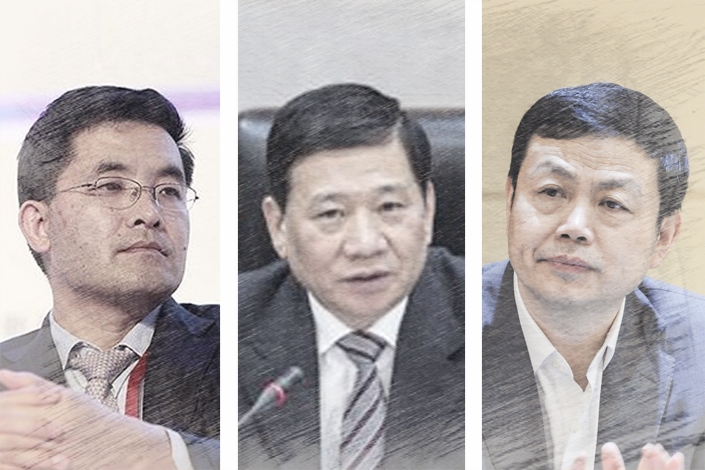Movers and Shakers: Resignations at Citic Group

| World of Finance
Going Postal: Veteran banker Zhang Jinliang (张金良) has been named chairman of the Postal Savings Bank of China (PSBC), several months after his predecessor Li Guohua (李国华) became general manager of China Unicom, one of China's big three state-owned telecoms companies.
Resignations at Citic Group: Leading Chinese brokerage Citic Securities Co. Ltd.’s Chief Risk Officer Ge Xiaobo (葛小波) has submitted his resignation to the company board, according to sources with knowledge of the matter. He's rumored to be heading to competitor Guolian Securities Co. Ltd. Ge, who was only appointed to the role last month, has served as the company’s chief financial officer since March 2017.
Meanwhile the chairman of CLSA Securities, a subsidiary of Citic Securities, has also resigned. Tang Zhenyi (唐臻怡) became chairman in 2017, and previously worked at the Ministry of Finance and the World Bank.
| Companies Roundup
Power moves: Coal and power giant China Energy Investment Corp. Ltd. (CEI) appointed Wang Xiangxi (王祥喜) as its new chairman and party secretary. Wang replaces Qiao Baoping (乔保平), who is retiring. Wang previously worked in the coal industry for 17 years before joining the provincial government in Hubei.
CEI employs 300,000 staff and its total assets were valued at 1.83 trillion yuan ($273.01 billion) as of September. The gargantuan energy firm was formed in 2017, after the comparatively smaller yet still giant Shenhua Group swallowed China Guodian Group and then renamed itself. As well as mining, CEI is a major player in coal-fired and wind power.
Telecoms: Yang Jie (杨杰), resigned as chairman of wireless carrier China Telecom to take over from Shang Bing (尚冰) as chairman at rival and industry-leader China Mobile. It's unclear who'll replace Yang at China Telecom.
The longer Telecom stays headless, the greater the likelihood it will merge with the third big player in China's massive telecoms market, China Unicom, one analyst told Caixin. Such a merger could help the two companies compete with the dominant China Mobile, which has about 60% of the market. It could also make the rollout of the next generation of wireless technology, 5G networks, more efficient — the last round of mergers in the sector happened just before 3G was rolled out in 2008.
Contact reporter Ke Baili (bailike@caixin.com)
Read more about Caixin’s Movers and Shakers.
If you think we’re missing important moves, or if you have any other comments on this newsletter, please let us know.

- 1Cover Story: China Carves Out a Narrow Path for Offshore Asset Tokenization
- 2Drownings Shake Chinese Enthusiasm for Travel to Russia
- 3China Business Uncovered Podcast: A $15 Billion Bitcoin Seizure and the Fall of a Cybercrime Kingpin
- 4Over Half of China’s Provinces Cut Revenue Targets
- 5In Depth: Inside the U.K.’s China-Linked Shell Company Factory
- 1Power To The People: Pintec Serves A Booming Consumer Class
- 2Largest hotel group in Europe accepts UnionPay
- 3UnionPay mobile QuickPass debuts in Hong Kong
- 4UnionPay International launches premium catering privilege U Dining Collection
- 5UnionPay International’s U Plan has covered over 1600 stores overseas






